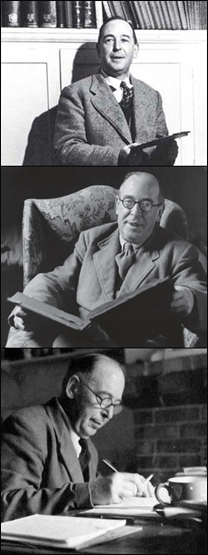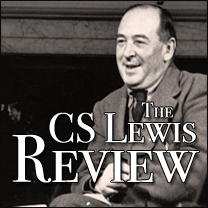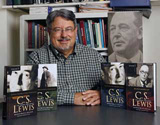
Sunrise, Sunset: A [Puddleglum] Palm Sunday Meditation
March 28th, 2015 | Skip to comments
John 11:11-16
Dr. Bruce L. Edwards
Sunday, March 29, 2015
Puddleglum on Palm Sunday
It’s Palm Sunday, and we want to be respectful of the church calendar and its momentum towards Easter, so our meditation today tries to locate us pretty close to that Palm-sheathed path for His triumphal entry into Jerusalem.
If it doesn’t quite get us loaded up on the donkey with Jesus this morning, at least it does get us within six weeks, and draws our focus to Jesus’s scouting trip to the village of Bethany and his encounter with Mary, Martha, and Lazarus’, within two miles of the vicinity of Jerusalem. This helps us see how plans for his eventual trip to Jerusalem, about six weeks away, were shaping up.
On what we have come to call Palm Sunday, Jesus confirms that He knows how to make an entrance; on Easter Sunday, he affirms He knows even better how to make an exit. From the cross, of course.
He has an eye on the clock, while his disciples have an eye on the calendar. Clocks and calendars, day and night, sunrises and sunsets. They are what today’s story is about. (But please, don’t look at your watches for the next twenty minutes.)
In the foyer, near the grandfather sundial, by the kitchen, in the lodgings across the Jordan where Jesus had crossed after the Feast of Dedication in Jerusalem, where the theological thugs of the captive Jewish nation called him Blasphemer and tried to seize Him, but had failed once again, in this place where Jesus would pause for supper and lay his head for rest and meditation and prayer, hung the calendar that had one date circled, and one word underscored: Passover.
The ultimate Passover, the One that the original Passover was staged primarily to forecast and to envision. The death of the first born. Blood spilled for protection, redemption, and revenge.
This Passover = Payback.
For it would be at this Passover that the Son of Man, the Son of David, the Lion of Judah, the Captain, the Word of Life, the Son of God, the King of Kings, would offer Payback for the world’s sins in a way the blood of bulls and goats could never solve.
And the person who had circled the date?
Thomas, so-called doubting Thomas. How do I know this? Stay with me.
Anti-Thomas: there have been a lot of bad Easter Thomas sermons over the years since the copyright on the Bible elapsed. Here’s the start of one I found at random on the internet:
[HUH?]
The Bible reveals very little about Apostle Thomas. However, from the three brief accounts of him in the Bible we know that he was by nature a doubting, negative sort of person – who even after living three years with Lord remained a very miserable person. Thomas habitually focused on the dangers, difficulties and doubts of each event, and somehow managed to make himself miserable when others were not. [OUCH!][REALLY?]
Instead of rejoicing that his friend Lazarus would be resurrected and that he himself would be blessed, he only thought of the danger and said “Let us also go, that we may die with him” (v. 16). Many Christians, like Thomas, focus on the dangers in events and are unable to see the blessings in them. For example, they fear to evangelize because their relationship with the hearer might be affected, but they are unable to consider the blessings if the hearer is saved.[HOW CATEGORICAL. WOW!]
Ok, as his defense attorney, let me protest, we need to hear from Thomas himself, in context. Which is really easy to do because he appears in the NT only ten times, and in only three scenes, all in John, does he even get any dialogue, but what he does with his screen time is quite arresting. He’s our prototypical Western, existential hero, he’s our Gary Cooper, who doesn’t speak much, but when he does, people listen. And react. Let’s go to John 11.
I also want you to pay particular attention to what Jesus says about the clock, and what Thomas says about the calendar.
John 11:1-16 (New International Version)
1 Now a man named Lazarus was sick. He was from Bethany, the village of Mary and her sister Martha. 2 This Mary, whose brother Lazarus now lay sick, was the same one who poured perfume on the Lord and wiped his feet with her hair. 3 So the sisters sent word to Jesus, “Lord, the one you love is sick.”
4 When he heard this, Jesus said, “This sickness will not end in death. No, it is for God’s glory so that God’s Son may be glorified through it.” 5 Jesus loved Martha and her sister and Lazarus. 6 Yet when he heard that Lazarus was sick, he stayed where he was two more days.
7 Then he said to his disciples, “Let us go back to Judea.”
8 “But Rabbi,” they said, “a short while ago the Jews tried to stone you, and yet you are going back there?”
9 Jesus answered, “Are there not twelve hours of daylight? A man who walks by day will not stumble, for he sees by this world’s light. 10 It is when he walks by night that he stumbles, for he has no light.”
Jesus takes a moment to remind us that He knows what the time of day is. And it is his way of telling his disciples that they need to pay attention to the signs of the times. Jesus lives in a time and place where daylight and nighttime are fixed by the rise of the sun and the setting of the sun. Day begins and ends not by the hands of a watch or the brrring of an alarm clock, but by the movement of the earth around the Sun, which Jesus, the Word of God, set in the heavens.
Jesus lived much nearer the equator and those who have, and we have, know that there is a genuine split between day and night, 12 hours of each, sunrise, sunset, sunrise, sunset. Day for night, night for day. There Is a great Latin word, quotidian that captures this dailiness of life. There are quotidian duties, relationships, challenges, hopes, dreams that can be experienced only a day at a time. Sunrise, sunset. Be grateful for each one.
Have you ever thought about what a blessing it is that life comes to us a day at a time or a week at a time or a year at a time? It would crush us. Remember Jesus’ comment that “Sufficient unto the day are the troubles thereof?”
That which occurs day by day, the trials and triumphs, loves and losses, our daily bread, daily this, daily that, are as much as this earthly tabernacle can take in. When we joke about having more hours in the day, or an extra day in the week, we don’t know what we are asking for. If you ask God, he says even 7 days are too much, and he takes one away for rest.
This quotidian manifesto (one day at a day) corroborates that God is alive and well. He gives daily what we need, and never more than we can stand. It’s no wonder many cultures have taken to worshipping the sun. But better are those who know Who made the sun, who made it for us, and why he did, why he allows it to rise every day to demarcate a new start, promising closure at day’s end. [This, by the way, is why I love baseball; it’s quotidian, like my daily manna, my daily bread.] Think of how often we say one of two things, “I thought this day would never end.” “I wish this day would never end.” The truth is, it is a blessing that days do begin, and end, and start again. Sunrise, sunset.
Have you ever noticed that DAY has earned the right to designate the whole 24 hr. period, and not the Night. All of the 24 hrs. are called a “day,” and not the “night.” Day stands for the whole thing. What are those 12 hours of night for? What’s Jesus’s point?
Night is a necessary condition for rest, for reflection, recovery, relief from the day. The day, daylight, is the time for work, for sturdy labor, under the sun. Nighttime, except for artificial light, is foreboding, a cloak for nefarious work and planning, and a symbol of evil. No matter how good we get at it, we weren’t designed as 24/7 beings. And 25/7 is not a comforting image of what eternity will mean. Eternity is not an endless succession of days, but of one day, one glorious day, that lasts forever. Your best day ever.
Jesus has his eye on the clock, but the saints have to have an eye on the calendar. Thomas does.
11 After he had said this, he went on to tell them, “Our friend Lazarus has fallen asleep; but I am going there to wake him up.”
12 His disciples replied, “Lord, if he sleeps, he will get better.” 13 Jesus had been speaking of his death, but his disciples thought he meant natural sleep.
14 So then he told them plainly, “Lazarus is dead, 15 and for your sake I am glad I was not there, so that you may believe. But let us go to him.”
16 Then Thomas (called Didymus) said to the rest of the disciples, “Let us also go, that we may die with him.“
Die with him? What in the world are you talking about Thomas? Lazarus has just died, don’t be so morbid! Remember: they were Jesus’s best friends!
That date on the calendar that Thomas has circled has come closer. They are inching toward Jerusalem, and the disciples are timid, baffled, perhaps even full of retreat. He understands, this deep, brooding Thomas, why moving closer to Bethany, two miles from Jerusalem, means moving closer to calamity, catastrophe, death. Palm Sunday? Thomas is thinking of the Passover. Friday, Bloody, Friday.
Have you ever had a friend who you think exemplified A. A. Milne’s character, Eeyore? Dour, self-pitying, gloomy? Thomas has been called Eeyore. It tells me both how little they Thomas or Eeyore.
How about C. S. Lewis’s Puddleglum the Marshwiggle? Do you remember his character traits? He’s often referred to as pessimistic, excessively ironic? Always finds the dark lining in the silver cloud,. He’s never met a situation he couldn’t find ominous, and if there are those about him who have the audacity to sound optimistic, he has the perfect word to quell their hopes. I would disagree. Puddleglum, I grant, seems to be the opposite of so many Lewisian characters: he is not dashing, full of ambition, or a clever strategist. What he is, is faithful.
If you know the story of The Silver Chair, you know that Puddleglum comes into his own when captured by the Queen of the Underland, who has imprisoned Prince Rillian, and has pretty well convinced Eustace and Jill that there is no such thing as Narnia, “no Overworld, no sky, no sun, no Aslan.”
He’s more a Hobbit than a Narnian, Puddleglum has two of the qualities that Lewis prized most among his own friends and colleagues: absolute loyalty; profound belief in Providence:
I’m a chap who always liked to know the worst and then put the best face I can on it. So I won’t deny any of what you said. . . But there’s one thing more her to be said, even so. Suppose we have only dreamed, or made, all those things—trees and grass and sun and moon and stars and Aslan himself. Suppose we have. Then all I can say is that, in that case, the made-up things seem a good deal more important than the real ones. . . . That’s why I’m going to stand by the play-world. I’m on Aslan’s side even if there isn’t any Aslan to lead it. I’m going to live as like a Narnian as I can, even if there isn’t any Narnia. . . . There are no accidents; Aslan is our guide.
Thomas is not Eeyore, he is Puddleglum. He’s been accused of pessimism, impertinence, doubt. Imagine having that on your gravestone or elegy: “. . . [H]is dour pessimism lighted up the room, his wry cynicism encouraged everyone who knew him, his pretentious self-preservation inspired us all. . . .”
No, that’s not Thomas. He has his eye on the calendar. It’s been circled for a long time. When he says let us go to Jerusalem, he knows that a day has been set when Jesus will meet his destiny, and when he does, Thomas wants to be with him.
Thomas has his eye on the calendar. And when he says, so we may die with Him, he reveals an understanding and professes a loyalty that surpasses even Peter’s. Following Jesus means following him in his death. Following Jesus means understanding the times, the time of day, and the calendar.
But what Thomas doesn’t understand is that Jesus is not going to Jerusalem to “meet his destiny,” like some tragic Greek hero who can’t escape his fate, He’s ordained his own destiny, his death, and his resurrection, as an obedient son.
Sunrise, sunset, this is what Jesus has been born to do. Sunrise, sunset, that quotidian clock and calendar has been propelling him forward to this moment, this Palm and this Passover, this Passion.
And Thomas sees all that though through a glass darkly.
Let’s go to Jerusalem and die with him. That’s not pessimism, folks. That’s faithfulness. That’s loyalty. That’s insight. The question is, will you go to Jerusalem to die with him?
Because we know his story, we know that Thomas, like his fellow disciples, did go to Jerusalem, but fell back with the rest, and refused the cup His master drank. Temporarily. Because of who Thomas was, with his eye on the calendar, and his face set like flint, Jesus paid him a special visit after his return.
24 Now Thomas (called Didymus), one of the Twelve, was not with the disciples when Jesus came. 25 So the other disciples told him, “We have seen the Lord!”
But he said to them, “Unless I see the nail marks in his hands and put my finger where the nails were, and put my hand into his side, I will not believe it.”
26 A week later his disciples were in the house again, and Thomas was with them. Though the doors were locked, Jesus came and stood among them and said, “Peace be with you!” 27 Then he said to Thomas, “Put your finger here; see my hands. Reach out your hand and put it into my side. Stop doubting and believe.”
28 Thomas said to him, “My Lord and my God!”
29 Then Jesus told him, “Because you have seen me, you have believed; blessed are those who have not seen and yet have believed.”
30 Jesus did many other miraculous signs in the presence of his disciples, which are not recorded in this book. 31But these are written that you may believe that Jesus is the Christ, the Son of God, and that by believing you may have life in his name.
History suggests what Thomas took from this encounter: he went to India for his Lord—and became the Apostle of Asia. He never wrote a gospel (not even, ahem, that weird apocryphal one). I wish he had. It would be blunt, honest, and direct.
What’s circled on your calendar?
What comes with each sunrise and sunset?
What do you do with your daylight?
[Pause]
Are you ready to go to Jerusalem to die with Him?
To hear the original presentation (3/28/10): For Bowling Green Covenant Church; A Meditation: “Sunrise, Sunset”




Comments
No comments yet.
RSS feed for comments on this post.
Sorry, the comment form is closed at this time.